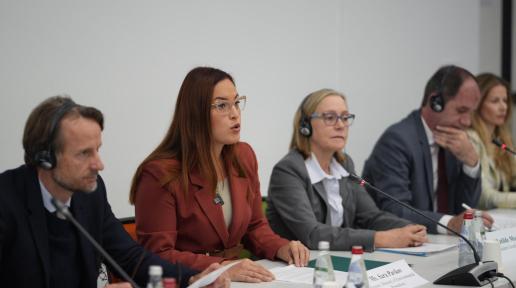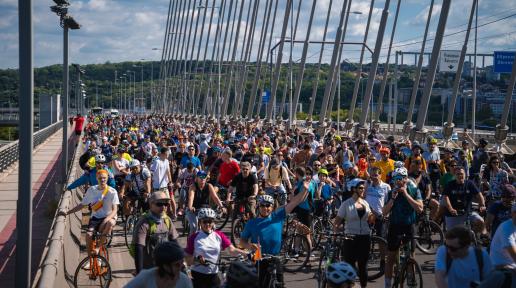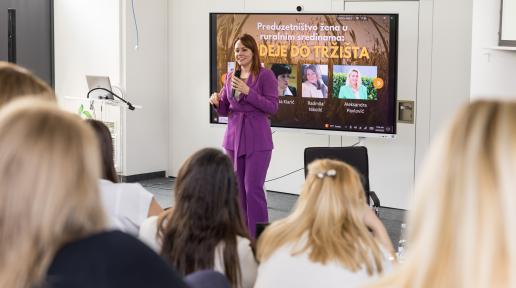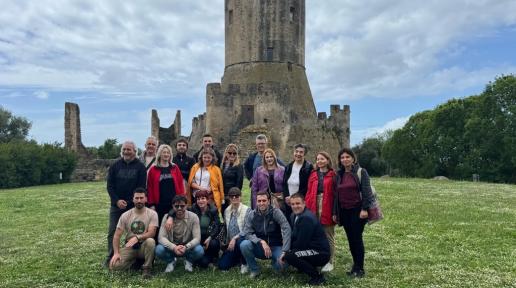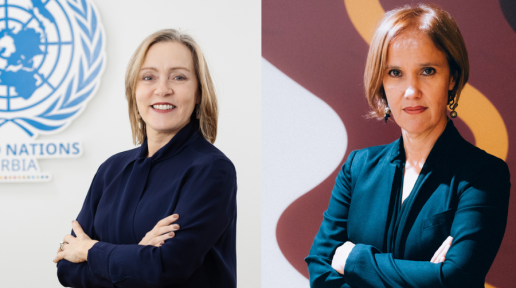Story
09 August 2025
#bodyright in High Schools: Youth Building Safer Online Spaces
In a world where digital communication, consciously or unconsciously, can cause harm, and phone and computer screens become a place of various challenges, a new energy is emerging in high schools across Serbia – one that brings understanding, empathy, and support. Under the umbrella of the #bodyright campaign, high school students in Belgrade, Inđija, and Požarevac are learning how to confront a 21st-century challenge that knows no borders: technology-facilitated gender-based violence.Workshops, implemented earlier this year by the UN Population Fund (UNFPA) as part of the joint project "Ending Violence- Empowering Change" and in cooperation with the Commissioner for the Protection of Equality, are conveying an important message to young people: just as copyright protects creative content, our bodies and images deserve protection in the online space.In the "Đorđe Natošević" High School in Inđija, around 20 students participated in a session that examined the mechanisms, consequences, and emotional impact of digital violence. Through guided exercises and peer-to-peer discussions, students explored not only what victims experience, but also how the choices of friends, classmates, and the school itself can further deepen trauma – or help stop it.In Požarevac, the workshop went even deeper – it opened with an ethical dilemma: If your friend records someone without consent and threatens to publish the recording, will you react? Through a powerful "yes" or "no" chair exercise, students physically took a stand – and then had to explain why. Friendship. Fear. Justice. Betrayal. Their answers encompassed a full spectrum of emotions, but all pointed to the same truth: technology-facilitated gender-based violence is not just a digital problem – its consequences are felt in the real world.In Belgrade, students analyzed concepts such as doxing, upskirting, and the thin line between consensual and abusive sexting. They learned to distinguish between explaining behavior and justifying it. This subtle but crucial understanding formed the basis for the next task: putting themselves in the position of a peer facing public shaming after online violence.Divided into small groups, students considered what that person might hear at school – whispers, laughter, silence. What they might feel – fear, anger, shame. And what they would need – empathy, protection, someone who simply believes them.The workshops further emphasized the importance of platforms such as "Smart and Safe" and "I Protect You," as well as the existence of a free support line for children – resources that many students may not even know exist. Participants discussed how a victim feels upon returning to school after experiencing online violence. Some imagined whispers in the hallways or mocking glances. Others recognized how powerful it is to stand by someone, instead of watching them be excluded.The #bodyright campaign is not just a slogan – it is changing the way we relate to each other in the digital age. In Serbia, it gives young people the tools to clearly state: "Your body is yours! Both online and in the real world!"And perhaps even more importantly – it gives them the courage to react when it is most needed.This activity is part of the joint UN/CoE ‘Tolerance’ campaign, aimed at countering hate speech and harmful narratives, and promoting inclusion, empathy, and respect.


